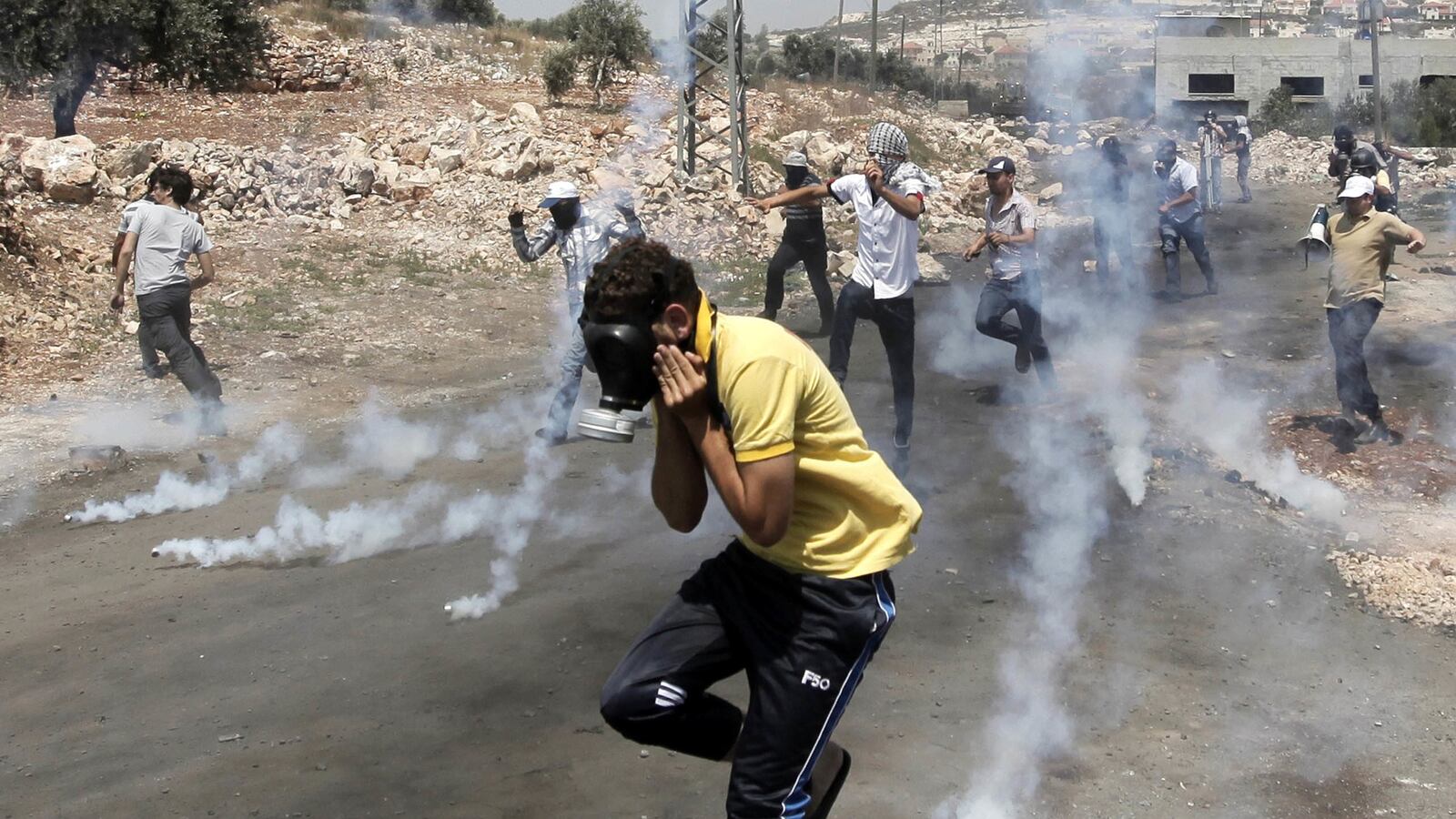TEL AVIV, Israel — When fireworks lit up the streets on the 4th of July in East Jerusalem, they weren’t part of a celebration; they were being used as weapons, and today tensions continue to flare. Israelis are still mourning the loss of three young boys murdered last month. Former political allies have turned against each other. Arabs are mourning the loss of Palestinian teen Mohammad Abu Khdeir, also murdered, and of social order in their regions. And while much of the violence is widely reported in the outside world, much is not.
Netanya, for instance, is a beachside destination enjoyed by French tourists, among others. Just east of it is the Arab town of Qalansawe. On Friday evening, masked men attacked Jews after trapping them on a local highway outside the Arab village. The assailants blocked the lane and asked the drivers if they were Jewish. When the question posed was answered in Hebrew, the attackers swarmed over the car and started assaulting the passengers inside. One of the passengers managed to flee with the vehicle. The others were not so lucky. Passengers had to escape on foot as the attackers torched the vehicle. A biker passing through was attacked as well. Young men pelted Israeli police officers with heavy rocks. Riots have been echoing throughout the town as well.
Qalansawe’s mayor, Abdel Baset Salame, raised his voice against the violence. “In the early morning hours I arrived at the scene of rioting,” he told the YNet news wire. “I tried to calm the youths down but unfortunately I was unable to. We condemn all of these acts, and condemn attacks against Jews.” The mayor is worried about the economic backlash. Many Jewish tourists visit the small town. “Incidents like this destroy the good things we are building,” he warned. He has held meetings with city dignitaries, school principals, city council members and sheikhs, to plead for their support to end the rioting.
Israel does have a large Arab population, which includes Bedouin tribes as well as Palestinians, with Christian Arabs an increasingly disaffected minority within the minority. Many of the Bedouin and Christians, especially, are doing their best to distance themselves from the violence. A handful of Christians have even joined the Israeli military, although Arabs of any confession are exempt from military service.
Social order is beginning to break down: Targeted killings based on religion, destruction of public property, and vigilante justice are spreading.
Another report from many weeks ago that has resurfaced amid the unrest, of a Jew being killed simply for being a Jew: 20-year-old Shelly Dadon allegedly was murdered by a Palestinian cab driver on her way to a job interview outside of the northern Israeli city of Afula on May 1. The alleged murderer reportedly confessed to the crime over the weekend.
Palestinian acts of violence are answered by heavy Israeli responses. After the abduction of Israeli teenagers Gil-ad Shaer, Naftali Frenkel, and Eyal Yifrach, all Palestinians from Hebron were barred from entering Israeli territory, meaning that those who worked in the Israeli section of the town would now be unable to get to their jobs.
Hamas exploits the resulting Arab discontent to fan the flames of violence and war. But Hamas is in trouble these days: The abduction of the Israeli teens justified an Israeli crackdown that returned to prison many Hamas supporters who had been released in exchange for the long-held hostage soldier Gilad Shalit.
The new secular Egyptian government has ended the support for Hamas that was provided by the short-lived Muslim Brotherhood government of Mohamed Morsi. Egypt has blocked the tunnels Hamas formerly used to smuggle goods and weapons into Gaza—and to get its operatives out again. Having lost its nearby ally, Hamas now feels isolated.
Yes, Hamas rockets continue to fall on Israel, but Hamas is being careful. Its leaders do not wish to provoke an Israeli incursion into Gaza, not at a time when their patron, Iran, already has its hands full in Syria and Iraq. So, Hamas fires instead into very lightly settled areas in the western Negev desert, where rockets can make loud noises with minimal risk of casualties.
Even the provocateurs, it would seem, recognize the need for some restraint. But given today’s angry mood, any individual mistake could provoke a major confrontation or escalate in other unpredictable ways.
A Palestinian-American teen originally from Tampa, Florida, Tariq Khdeir allegedly was caught throwing Molotov cocktails during the riots in East Jerusalem that followed his cousin’s funeral, and his associates were caught in possession of knives. In any case, Israeli police were caught on video beating him up before arresting him, and the fact that Khdeir holds U.S. citizenship has elevated this unjustifiable act of brutality into an international incident.
Higher Israeli authorities are trying to suppress vigilantism. Within two days of the murder of the abducted Palestinian teen Mohammad Abu Khdeir, who may have been burned alive, six Israeli suspects were arrested by Israeli police. Israeli President Shimon Peres telephoned the Khdeir family to offer his condolences and Environment Minister Amir Peretz visited personally. They and others are anxious to show that despite the despicable actions of some rogue individuals, the country does not support the movement of senseless violence. It’s still true that most of Israel yearns for peace.
Yet the murderers of the three Israeli teens have yet to be found—and the summer is hot.






